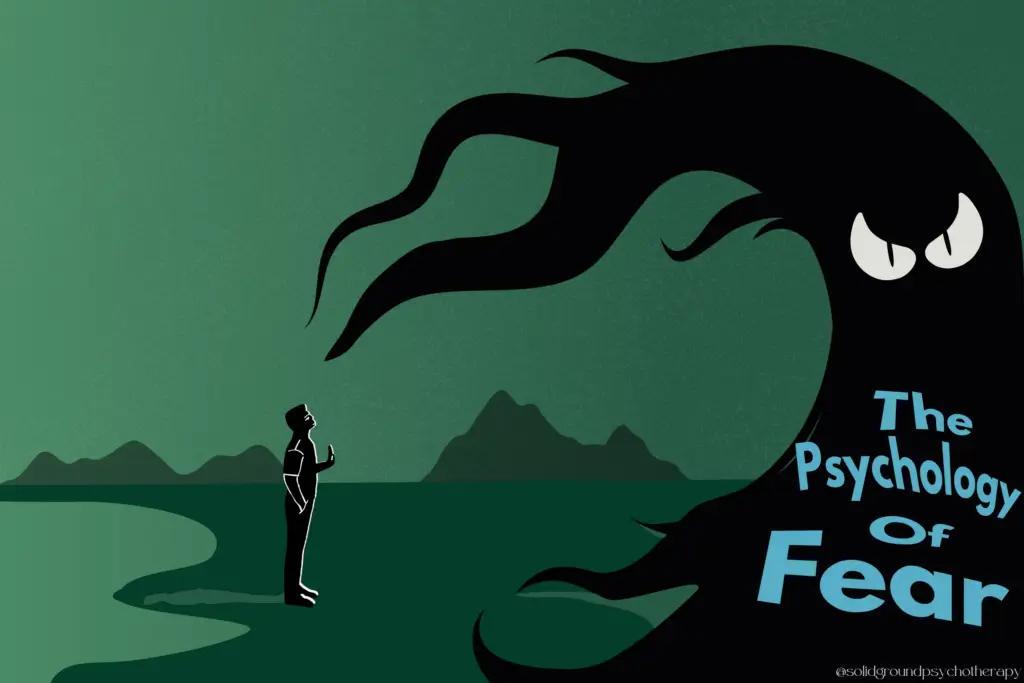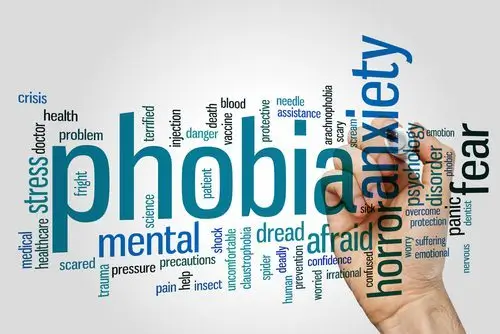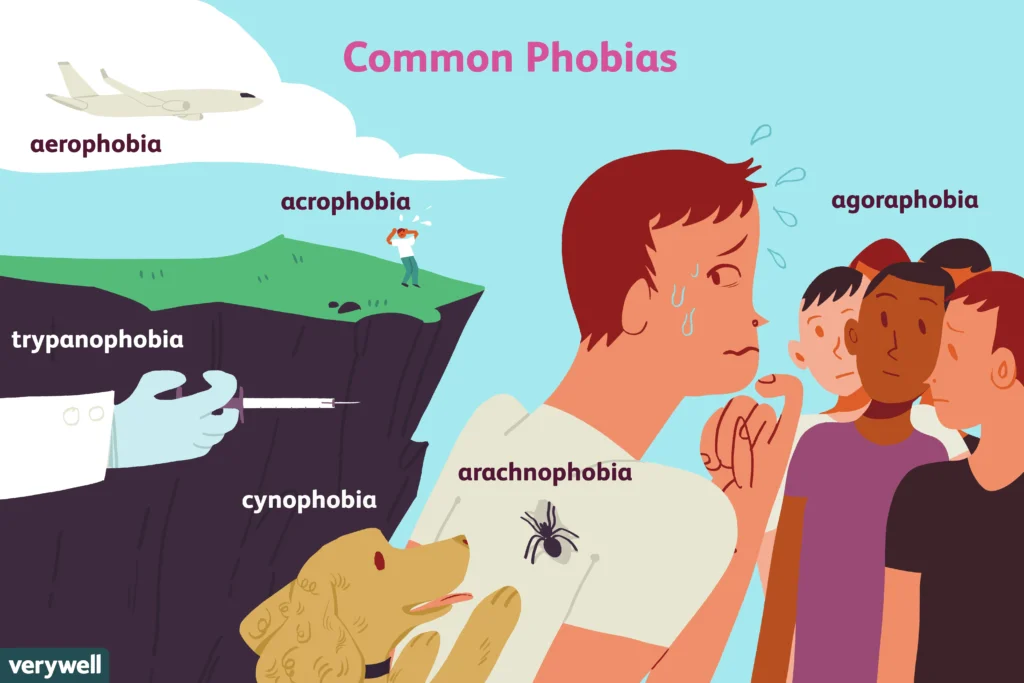
Did you know?
Our ‘normal’ fears help protect us, but fears can become overwhelming at times to the point where they dominate our lives. When fear becomes uncontrollable, irrational, and very strong, we call this a phobia. People can develop phobias of nearly everything: spiders, heights, tight spaces, etc. Phobias are very real. Phobias can be very limiting. We will discover why our brains produce such strong fears and how we can overcome phobias in the future.
What is a Phobia?
A phobia is more than just fear. It is an overwhelming and irrational fear of something specific. This could be an animal, a situation, or an object. The fear is so intense. It creates a strong urge to avoid that object, situation, or animal completely. This avoidance may significantly impact their everyday lives. Oftentimes, people with phobias will go to any lengths to avoid encountering this trigger. They may be fearful even thinking about the phobia. Hence, the fear may produce anxiety, and physical fear symptoms may appear.
Every day, fears can be realistic and are proportional to the danger. Phobias are disproportionate. The actual source of danger is usually small or nonexistent. However, to the person, the fear is typically very realistic and feels overwhelming.

Read more: How to Stay Optimistic at All Times
How Phobias Develop: A Psychological Perspective
Phobias can develop in several ways, according to psychologists. One way is a direct experience. If you had a terrifying interaction with a dog, you likely developed a phobia of dogs. This is referred to as classical conditioning, as in this example, your brain paired the dog with that terrible feeling of fear. Another way is through observational learning. If you saw another person being very afraid of spiders, you may have learned to be afraid of spiders too.
In addition to learned experiences, genetics can also be a factor. Some people are more predisposed to anxiety; they are more likely to develop phobias as well. This said, it is usually a combination of both factors, your genes and your experiences, that tend to interact and create a phobia. Research estimates that in any given year, 3-5% of the global population has a specific phobia. So, this establishes it as a fairly common issue.
The Psychology of the Brain on Fear
Your brain has an extreme response when you face your phobia. The amygdala part of your brain handles fear. It starts firing off alarm signals, activating your body’s “fight or flight” response. Your heart rate increases. Your breathing quickens and becomes shallow. Also, your muscles become rigid. Your body is preparing for danger, even if it is not real, your brain reacts as if it is.
Neuroimaging studies demonstrate increased amygdala activity on exposure to the object or situation that the phobic person fears, a biological response that reinforces the experience of great fear. The fear may be intensified over time by avoidance of the phobia; the brain has learned to believe (again, even if it is not) that avoidance keeps you safe. This also begins a cycle of avoidance and fear. Understanding that a cycle exists is critical in understanding how to break the cycle, leading toward overcoming phobias.

Common Phobias
There are many different types of phobias. Some common phobias include:
• Arachnophobia: fear of spiders
• Acrophobia: fear of heights
. Claustrophobia: fear of enclosed spaces
• Ophidiophobia: fear of snakes
• Aerophobia: fear of flying
What does the data suggest: Recent data.
According to a report published by the National Institute of Mental Health (NIMH) in 2023, approximately 12.5% of US adults will experience a specific phobia in their lifetime, indicating that phobias are an alarming mental health issue, particularly in light of the many effective treatments that exist. Similarly, the Journal of Anxiety Disorders published a report in 2024 that very few individuals in the community suffering from phobias seek professional treatment, suggesting there are still many individuals with fears that remain untreated and cause them problems in their daily lives.
Islamic Perspective: Seeking Help and Gaining Strength
The Messenger of Allah (PBUH) has said, “Allah sends down no disease (i.e, ailment) but what He also sends down its cure.” Phobias and anxiety disorders can be included in this. There should be a stigma associated with looking for help from a qualified therapist/clinician.
Islam also promotes the practice of seeking safety with Allah (SWT) through prayer (Dua) and remembrance of Allah (Dhikr). Read the Quran for verses that state strength in times of fear and protection in times of anxiety. So, using Allah’s way of trusting and praying, along with professional help, will assist an individual to overcome disruptive events. While professional help is a requirement, spiritual wellness is also a work of healing.
Read more: Save Money Easily with 6 Simple Habits
Managing the Fear: Steps to Freedom
Phobias can be treated. There are many ways to treat phobias, including a variety of effective treatments. The most common treatments include exposure therapy. Also, cognitive-behavioural therapy (CBT) is another effective treatment. CBT helps identify your negative thinking patterns as well as rethink the thoughts that go along with the fear that is connected to the phobia.
You can follow some steps:
- Recognize the fear: It is critical to recognize that your fear is affecting your life.
- Find a professional: Open a dialogue about your fear with your doctor or therapist. They will be able to help you figure out possible options.
- Find a Way to Cope: Everyone copes differently with fear and the unknown. Your therapist can help you discover some relaxation exercises and options to cope with your anxiety.
- Gradual Exposure: With your therapist, you can be exposed to your feared situation little by little.
- Challenge Negative Thoughts: If you can realize that your fears are not often based in reality.

The Way to Courage: Recapturing Your Life
Your phobia can feel like a cage. But you can escape it. By identifying what caused the fears in the first place or getting the right help, you can escape constant fear. You are not alone. Millions of people have phobias, and there is a lot of research on effective treatments available. Now it is time for you to take back your courage. Hence, step away from the fears. Reclaim your life. You have the courage and the strength to face your shadows and find tranquility in your life — permanently.



Leave a Reply